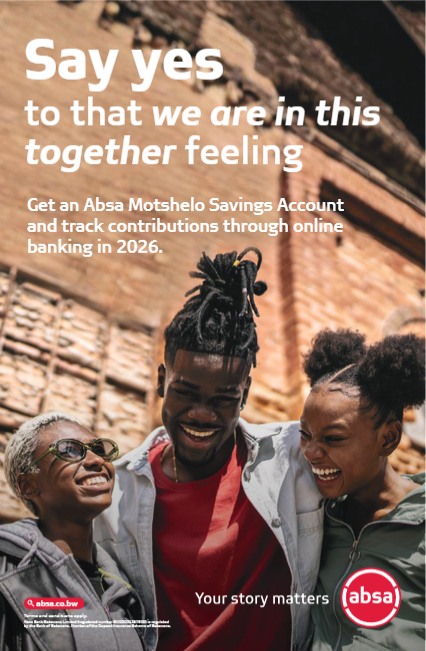International pressure groups are pushing Maun based non-governmental Ngamiland Council of non-governmental organisations (NCONGO) to convince state president, Mokgwetsi Masisi to stop wildlife trade.
According to NCONGO’s Executive Director, Siyoka Simasiko, international conservation groups are breathing hard on Botswana to actually ban hunting all together as they believe it promotes poaching.
However Simasiko revealed that as an NGO that represents communities that directly benefit from wildlife, they stand with Masisi on the matter as hunting ban can bring crippling consequensis on these communities.
“When his Excellency President Masisi made the decision in May, 2019 to lift the moratorium (hunting ban) after extensive consultations throughout Botswana by the Presidential Sub Committee to Cabinet, the impact that the lack of hunting has had on community livelihoods was so much at the forefront in Botswana,” Simasiko noted.
Of recent concern is a proposed bill in California, United States of America (USA), which seeks to close market on wildlife products, a development that has left the NGO on edge.
“This bill would enact the “Iconic African Species Protection Act” and criminalize the possession of certain lawfully hunted African animals and their parts. NCONGO therefore believes that SB 1175 is a direct threat to community-based natural resource management (CBNRM) and the rural communities who, for many generations, have tolerated, managed and co-existed with wildlife,” Simasiko explained.
Infact he has already written an opposing letter to Carlifonia state Assembly in an attempt to stop them from launching a campaign against hunting.
“Legal, regulated hunting conducted by local communities generates almost two-thirds of tourism revenue, annually. Other southern African nations, like Botswana, rely on such hunter generated revenue to perform vital conservation efforts. In addition, hunting provides communities “better housing, water reticulation, income to households, better diets, infrastructure development such as lodge and vehicles for transportation” and support programs aimed at homes for the needy, funeral insurance and expense coverage, household dividends, and scholarships,” Simasiko pleaded.
He further contended that in the absence of hunting clients from the USA, many forms of wildlife management and land use will be rendered unviable and rural communities will be plunged into deeper despair, “Historically, rural communities have been very conservative in their use of wildlife quotas and are very capable in managing resources if incentives to tolerate that resource are tangible as regulated hunting plays a critical role in protecting habitat, species enhancement and CBNRM.”
Botswana especially the North of the country has a great animal population of different species hence the region is the main tourism destination in the country. Most big safari camps are lying within the delta, with Maun as the main gateway.
Many communities live in settlements along the delta and benefit through hunting and photographic concessions which are managed through community development trusts.
Under NCONGO are eighteen community development trusts, fourteen of which are in Ngamiland with several villages and settlements under their care.
Nonetheless, former president Seretse Khama Ian Khama banned hunting in 2014, sighting that hunting promoted poaching and a decline in animal population which have negative effect on tourism. Then the government promoted the shoot to kill policy against poachers by anti poaching agents, including soldiers and wildlife officers.
However when president Masisi succeeded to power in 2018 at the end of Khama’s term he re-introduced hunting, a move that was welcomed by communities. In the process department of wildlife and national parks were disarmed and red zone poaching areas including the Okavango delta were left to be policed by the army’s anti-poaching units.
Simasiko said hunting ban brought misery to communities, “Conservation in Botswana continues to face financial challenges resulting from the 2014 moratorium and COVID-19 and SB 1175 (the bill) would further diminish our conservation efforts.”
His contention was that local communities in Botswana are finally starting to bounce back after the devastating impacts of the 2014 hunting moratorium, “Among other things, the hunting ban deprived local communities of game meat that represented a vital part of their diet and resulted in a decline in income and employment with an estimated P40 million lost annually and 600 lost jobs.”
International conservation groups have been campaigning against Botswana’s new hunting policy and blaming the high number of animal deaths, including that of Rhinos on poaching.
According to conservationists wildlife trade is the fifth most profitable illegal trade after drugs, counterfeit, guns and human trafficking.













